Quantum computing, a revolutionary field at the intersection of quantum mechanics and computer science, has garnered significant attention in recent years for its potential to solve complex problems that are beyond the reach of classical computers. With ongoing research and development, scientists and engineers are making groundbreaking discoveries and achieving remarkable breakthroughs in quantum computing technology. In this comprehensive guide, we delve into the latest advancements in quantum computing, exploring the underlying principles, key breakthroughs, and potential applications that are reshaping the landscape of computation.
1. Introduction to Quantum Computing
Quantum computing harnesses the principles of quantum mechanics, such as superposition and entanglement, to perform computations in a fundamentally different way than classical computers. While classical computers encode information in bits, which can be either 0 or 1, quantum computers use quantum bits, or qubits, which can exist in a superposition of states, representing both 0 and 1 simultaneously. This unique property enables quantum computers to explore vast solution spaces and solve complex problems exponentially faster than classical computers.
2. Theoretical Foundations of Quantum Computing
At the heart of quantum computing lies a set of fundamental principles and mathematical frameworks that govern the behavior of quantum systems. Some key concepts include:
- Superposition: Qubits can exist in multiple states simultaneously, allowing quantum computers to perform parallel computations on all possible inputs.
- Entanglement: Qubits can become correlated with each other, even when separated by large distances, enabling quantum computers to perform coordinated operations and achieve computational speedups.
- Quantum Gates: Analogous to classical logic gates, quantum gates manipulate qubits to perform quantum operations such as superposition, entanglement, and measurement.
- Quantum Algorithms: Quantum algorithms leverage the unique properties of quantum mechanics to solve specific problems more efficiently than classical algorithms, with examples including Shor’s algorithm for integer factorization and Grover’s algorithm for unstructured search.
3. Recent Breakthroughs in Quantum Computing
In recent years, researchers and scientists have made significant strides in advancing quantum computing technology, achieving several notable breakthroughs:
- Quantum Supremacy: In 2019, Google claimed to have achieved quantum supremacy, demonstrating that its 53-qubit quantum processor could solve a specific problem faster than the world’s most powerful classical supercomputer.
- Error Correction: Researchers have made progress in developing error-correcting codes and fault-tolerant architectures to mitigate the effects of noise and decoherence in quantum systems, paving the way for more reliable and scalable quantum computers.
- Quantum Volume: IBM introduced the concept of quantum volume as a metric for assessing the computational power of quantum computers, taking into account factors such as qubit count, connectivity, and error rates.
4. Potential Applications of Quantum Computing
Quantum computing holds the potential to revolutionize various industries and fields, offering solutions to previously intractable problems and unlocking new opportunities for innovation. Some potential applications include:
- Cryptography: Quantum computers have the potential to break conventional cryptographic schemes, prompting the development of quantum-resistant encryption algorithms and protocols.
- Drug Discovery: Quantum computers can simulate the behavior of molecules and proteins with unprecedented accuracy, accelerating the process of drug discovery and development.
- Optimization: Quantum computers excel at solving optimization problems, such as route optimization, portfolio optimization, and supply chain management, leading to more efficient and cost-effective solutions.
5. Challenges and Considerations
Despite the promising potential of quantum computing, several challenges and considerations remain:
- Hardware Limitations: Building and scaling quantum hardware with sufficient qubit coherence and connectivity remains a significant challenge, requiring advances in materials science, fabrication techniques, and error correction.
- Algorithm Development: Designing and optimizing quantum algorithms for practical applications require expertise in quantum physics, mathematics, and computer science, posing challenges for algorithm development and implementation.
- Security Concerns: Quantum computing poses security risks to traditional cryptographic systems, necessitating the development of quantum-resistant encryption methods and protocols to safeguard sensitive information.
FAQs (Frequently Asked Questions)
Q: How does quantum computing differ from classical computing?
A: Quantum computing harnesses the principles of quantum mechanics, such as superposition and entanglement, to perform computations in a fundamentally different way than classical computers. Quantum computers can explore vast solution spaces and solve complex problems exponentially faster than classical computers.
Q: When will practical quantum computers be available for commercial use?
A: While significant progress has been made in advancing quantum computing technology, practical quantum computers suitable for commercial use are still in the research and development phase. It is difficult to predict an exact timeline for their availability, as it depends on various factors such as technological advancements, scalability, and investment in research.
Q: What are some potential ethical implications of quantum computing?
A: Quantum computing raises ethical considerations related to privacy, security, and the potential impact on society. Issues such as data security, algorithm bias, and the redistribution of power in technology may need to be addressed as quantum computing technology advances.
Conclusion
Quantum computing represents a paradigm shift in computation, offering unprecedented computational power and the ability to solve complex problems that were previously infeasible with classical computers. With ongoing research, development, and breakthroughs, quantum computing
is poised to revolutionize various industries, from cryptography and drug discovery to optimization and artificial intelligence. As the field continues to evolve, quantum computing holds the promise of unlocking new frontiers of knowledge and innovation, shaping the future of technology and society.


